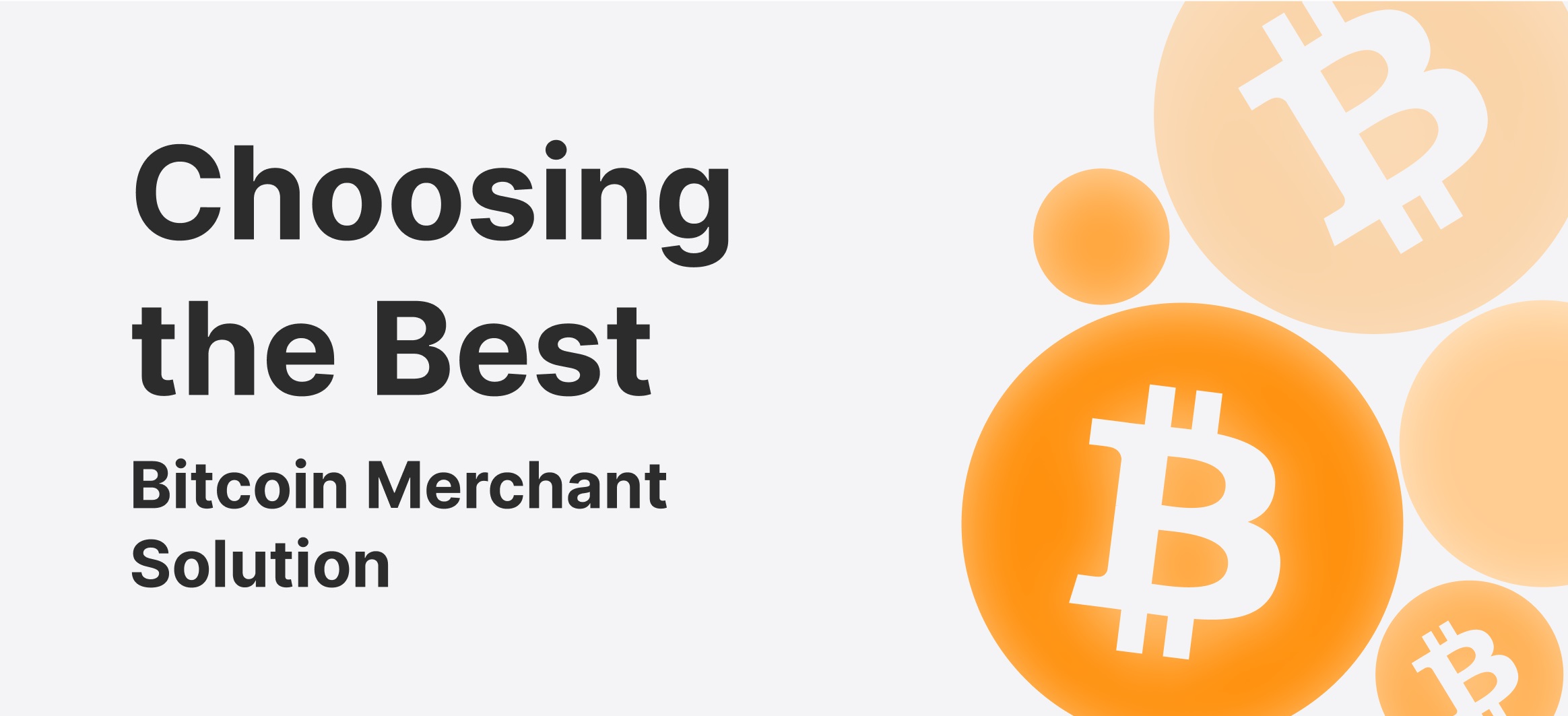Economy
What’s the Difference Between a Bitcoin Merchant Account and a Payment Gateway

We expect many changes as time passes and various industries develop. Businesses are trying to approach financial management differently, as some are trying to shift from conventional payment systems to blockchain technology and digital assets. Companies are starting to modify their tactics to accept and manage payments made with virtual assets to stay up to date.
This change is not without its difficulties, though. It requires a careful evaluation of numerous variables and a clear comprehension of how they interact. In this article, we aim to draw attention to the important factors that must be taken into account when choosing the best Bitcoin merchant solution.
Essential Concepts in Crypto Merchant Accounts
A merchant account is a special location where companies can hold sales proceeds until they are transferred to their bank accounts in accordance with the conditions stipulated by the merchant service provider.
By creating a link between the business and the client’s bank, these accounts are essential to the efficient processing of card transactions for e-commerce enterprises. These accounts are particularly attractive because there are no processing costs, and cryptocurrency transactions are irreversible, especially in high-risk e-commerce industries.
Crypto payment gateways are connected to merchant accounts, which require thorough identity and business verification in order to conduct transactions. These gateways are essential for facilitating international payments, guaranteeing smooth financial transfers from customers to companies, and discouraging fraudulent activity. By confirming the authenticity of the customer’s card information and approving authorised fund transfers, they verify transactions.
Payment gateways allow companies to accept digital currency by acting as a link between blockchain technology and traditional banking systems. These gateways can use the blockchain network to validate transactions and convert cryptocurrencies into fiat money for an extra fee, which helps to stabilise the market.
The Collaboration of Merchant Accounts and Payment Gateways
When it comes to financial transactions, the procedure usually starts when the customer makes a payment. A processing engine then contacts the customer’s bank to obtain confirmation. The money is kept in the merchant account for a short while after verification and then sent to the company’s main bank account. The client’s information is collected safely and sent to their bank for verification. The bank checks the availability of funds and the validity of the card before approving the transaction.
The payment gateway is obliged to send this data to the bank. Interestingly, merchant accounts—especially those with Bitcoin—have made it much easier for customers and companies to transfer money. The buyer completes the purchase quickly after the payment gateway verifies that it is legitimate.
The Difference
Payment processing companies that accept crypto are essential to guaranteeing safe transactions between clients and companies. After a transaction, money moves from the card issuer to the bank of the merchant and then to the company’s main account.
A merchant account manages transactions made through a business bank, whereas a payment gateway controls the flow of funds during a sale. These elements are essential for handling credit/debit card and cryptocurrency payments, allowing companies to take payments securely and clients to make purchases with confidence.
Integrating Bitcoin Payments into Your Business
Benefits like cost reductions, streamlined transactions, and chargeback protection can be utilised to integrate Bitcoin payments into your business operations easily. Here’s how to get started, step-by-step:
Choosing the Best Crypto Payment Gateway: Make sure the crypto payment gateway you select meets your needs in terms of supported cryptocurrencies, transaction costs, security features, and customer service.
Creating an Online Store: Create a merchant account with the gateway of your choice, making sure it has all the features and capabilities your company needs.
Creating Digital Wallets: To effectively handle various digital assets, set up multi-currency digital wallets to accept Bitcoin payments and make it easier to convert them into fiat money when needed.
Activating BTC Payments: After integration and wallet setup are complete, notify your users that your platform now accepts Bitcoin payments and activate BTC payment options.
Some Additional Things to Consider
Take into account the following elements while choosing the best Bitcoin payment option:
Cost: Choose a payment method that offers fair transaction costs and strikes a balance between affordability and service quality.
Security Procedures: Make sure the payment method you select respects your privacy and has strong security features like encryption, 2FA, and cold storage options.
User-Friendliness: For maximum user convenience, consider a system that provides simple cryptocurrency selection, interoperability with well-known wallets, and smooth integration procedures.
Customer service: Choose suppliers with attentive customer service departments to quickly resolve any problems and guarantee a seamless payment process for your clients.
Supported Cryptocurrencies: Reach a wider audience by leveraging platforms that support a variety of well-known cryptocurrencies, such as ETH and BTC.
Final Thoughts
Payment gateways and merchant accounts are vital parts of any organisation since they make transactions easier and help them stand out from the competition. They are essential in offering effective cryptocurrency payment options.
Economy
Seven Price Gainers Boost NASD OTC Bourse by 2.19%

By Adedapo Adesanya
Seven price gainers flipped recent declines at the NASD Over-the-Counter (OTC) Securities Exchange, raising the alternative stock market by 2.19 per cent on Friday.
According to data, the market capitalisation added N51.24 billion to end N2.389 trillion compared with the previous day’s N2.338 trillion, while the NASD Unlisted Security Index (NSI) climbed 85.65 points to close at 3,994.32 points, in contrast to the 3,908.67 points it ended a day earlier.
Business Post reports that the advancers were led by MRS Oil Plc, which improved its value by N13.00 to N200.00 per share from N187.00 per share, FrieslandCampina Wamco Nigeria Plc gained N7.40 to settle at N91.55 per unit versus the previous day’s N84.15 per unit, Central Securities Clearing System (CSCS) Plc appreciated by N6.08 to N71.00 per share from N64.92 per share, Afriland Properties Plc added 66 Kobo to finish at N17.17 per unit versus N16.51 per unit, IPWA Plc rose 37 Kobo to N4.15 per share from N3.78 per share, First Trust Mortgage Bank Plc grew by 11 Kobo to N1.20 per unit from N1.09 per unit, and Food Concepts Plc went up by 10obo to N3.70 per share from N3.60 per share.
On the flip side, there were two price losers led by Geo-Fluids Plc, which depreciated by 28 Kobo to N3.32 per unit from N3.60 per unit, and Industrial and General Insurance (IGI) Plc dropped 5 Kobo to sell at 45 Kobo per share from 50 Kobo per share.
Yesterday, the volume of trades went down by 92.0 per cent to 3.7 million units from 45.8 million units, the value of transactions fell by 59.4 per cent to N84.5 million from N208.2 million, while the number of deals went up by 7.7 per cent to 42 deals from 39 deals.
CSCS Plc remained the most traded stock by value (year-to-date) with 32.6 million units exchanged for N1.9 billion, trailed by Geo-Fluids Plc with 119.6 million units valued at N470.3 million, and Resourcery Plc with 1.05 billion units traded at N408.6 million.
Resourcery Plc closed the day as the most traded stock by volume (year-to-date) with 1.05 billion units sold for N408.7 million, followed by Geo-Fluids Plc with 119.6 million units worth N470.3 million, and CSCS Plc with 32.6 million units worth N1.9 billion.
Economy
FX Demand Worries Weaken Naira to N1,346/$1 at Official Market

By Adedapo Adesanya
The Naira weakened further against the United States Dollar in the Nigerian Autonomous Foreign Exchange Market (NAFEX) on Friday, February 20, by N4.97 or 0.37 per cent to N1,346.32/$1 from the N1,341.35/$1 it was transacted on Thursday.
Heightened FX demand tilted the market toward the downside yesterday, exerting upward pressure on rates despite efforts by the Central Bank of Nigeria (CBN) to stabilise the foreign exchange market.
Also in the official market, the domestic currency depreciated against the Pound Sterling during the session by N9.39 to sell for N1,815.25/£1 versus the previous day’s N1,805.86/£1, and lost N7.33 against the Euro to close at N1,584.62/€1 compared with the preceding session’s N1,577.29/€1.
The story was not different for the Nigerian Naira at the GTBank FX desk, where it depleted against the Dollar by N7 on Friday to quote at N1,356/$1 versus the N1,349/$1 it was sold a day earlier, but remained unchanged in the black market at N1,370/$1.
It was observed that risky sentiment among Foreign Portfolio Investors (FPIs) contributed to the FX market, amid fears of hot money flight due to capital gains tax and other factors.
As for the cryptocurrency market, it was mostly green yesterday in reaction to a Supreme Court verdict dismissing a fresh 10 per cent global levy by President Donald Trump.
The apex court on Friday described Mr Trump’s global tariff rollout as illegal. The decision did not clarify what should happen to tariff revenue already collected, and it doesn’t necessarily spell the end of the trade agenda, with multiple legal and executive avenues still available.
Litecoin (LTC) grew 2.7 per cent to $55.00, Cardano (ADA) appreciated 2.6 per cent to trade at $0.2815, Binance Coin (BNB) expanded by 2.6 per cent to $627.19, Dogecoin (DOGE) recouped 1.3 per cent to quote at $0.1, Ripple (XRP) jumped 0.7 per cent to $1.43, Solana (SOL) improved by 0.5 per cent to $84.15, and Ethereum (ETH) soared 0.1 per cent to $1,962.78.
However, Bitcoin (BTC) lost 0.2 per cent to sell for $67,850.49, while the US Dollar Tether (USDT) and the US Dollar Coin (USDC) traded flat at $1.00 each.
Economy
Fidson, Jaiz Bank, Others Keep NGX in Green Territory

By Dipo Olowookere
A further 0.99 per cent was gained by the Nigerian Exchange (NGX) Limited on Friday after a positive market breadth index supported by 53 price gainers, which outweighed 23 price losers, representing bullish investor sentiment.
During the trading day, the trio of Jaiz Bank, Fidson, and NPF Microfinance Bank chalked up 10.00 per cent each to sell for N11.00, N86.90, and N6.27, respectively, while Deap Capital appreciated by 9.96 per cent to N7.62, and Mutual Benefits increased by 9.94 per cent to N5.42.
Conversely, Secure Electronic Technology shed 10.00 per cent to trade at N1.62, Sovereign Trust Insurance slipped by 9.73 per cent to N2.32, Ellah Lakes declined by 7.91 per cent to N12.80, International Energy Insurance retreated by 5.56 per cent to N3.40, and ABC Transport moderated by 5.26 per cent to N9.00.
Data from Customs Street revealed that the insurance counter was up by 2.52 per cent, the industrial goods sector grew by 2.28 per cent, the banking space expanded by 1.43 per cent, the consumer goods index gained 1.23 per cent, and the energy industry rose by 0.05 per cent.
As a result, the All-Share Index (ASI) went up by 1,916.20 points to 194,989.77 points from 193,073.57 points, and the market capitalisation moved up by N1.230 trillion to N125.164 trillion from Thursday’s N123.934 trillion.
Yesterday, investors traded 820.5 million stocks valued at N28.3 billion in 63,507 deals compared with the 898.5 million stocks worth N38.5 billion executed in 61,953 deals, showing a jump in the number of deals by 2.51 per cent, and a shortfall in the trading volume and value by 8.68 per cent and 26.49 per cent apiece.
Closing the session as the most active equity was Mutual Benefits with 79.0 million units worth N427.1 million, Zenith Bank traded 44.0 million units valued at N3.8 billion, Chams exchanged 43.9 million units for N182.0 million, AIICO Insurance transacted 42.4 million units valued at N179.8 million, and Veritas Kapital sold 36.0 million units worth N90.6 million.
-

 Feature/OPED6 years ago
Feature/OPED6 years agoDavos was Different this year
-
Travel/Tourism10 years ago
Lagos Seals Western Lodge Hotel In Ikorodu
-

 Showbiz3 years ago
Showbiz3 years agoEstranged Lover Releases Videos of Empress Njamah Bathing
-

 Banking8 years ago
Banking8 years agoSort Codes of GTBank Branches in Nigeria
-

 Economy3 years ago
Economy3 years agoSubsidy Removal: CNG at N130 Per Litre Cheaper Than Petrol—IPMAN
-

 Banking3 years ago
Banking3 years agoSort Codes of UBA Branches in Nigeria
-

 Banking3 years ago
Banking3 years agoFirst Bank Announces Planned Downtime
-

 Sports3 years ago
Sports3 years agoHighest Paid Nigerian Footballer – How Much Do Nigerian Footballers Earn



















